Éva Kármentő
出生 : 1938-08-03, Budapest, Hungary

Editor
One of the doyennes of Hungarian film deals with a dark period of national history: the Soviet regime in Hungary. She portrays it through the fate of the former prime minister and national hero, Imre Nagy. The script is based on the diary written by Imre Nagy, and the memories of his daughter, Erzsébet Nagy, as well as authentic documents and records.

Editor
This drama follows the dilemma of a young, unwillingly pregnant wife who gives her child up for adoption by a businesswoman. Anna doesn't need another mouth to feed. She can barely afford to care for the two she already has so when she discovers that she is six weeks pregnant she readily accepts the cash offer from Terez, her tough boss at the store where she works. If she will isolate herself throughout the pregnancy, secretly bear the child and immediately allow Terez to sign for it, Anna will receive $50,000. Most of the story then focuses upon Anna's emotional processes as she evaluates her choice. Included are dream segments and shots an unborn baby in the womb.
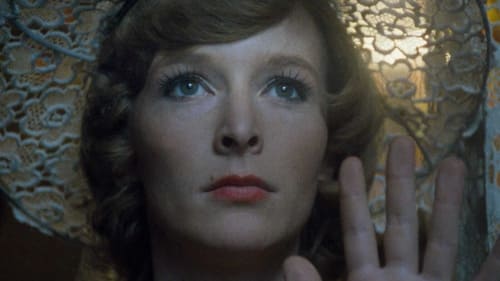
Editor
This story follows a young student, who is orphaned as she grows to adulthood in the shadow of the 1956 Hungarian uprising. Coming from the Communist intelligentsia, she sees her friends and family react differently. Her lover, a married factory manager, supports the patriots and later assists fellow workers in staging a strike. Meanwhile her sister and others express anger at being forced from their homes during the revolution and continue to express a hatred for the rebels afterwards. But in the end they realize that for all people, real life is not possible after the revolt and its brutal suppression by the Soviets and their collaborators.
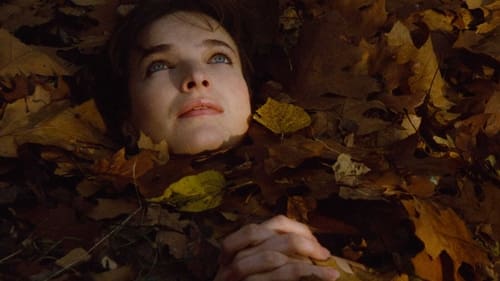
Editor
A continuation of "Diary for My Children," the film picks up in 1950, when Juli, the diarist, is 18 and determined to become a movie director.

Editor
Blind luck ties the fate of two people together.

Editor
Three generations live side by side. The wilful, jack-in-all-pots grandmother blackmails the family with fake faintings, while grandpa suffers from cerebral sclerosis. Mother manages a fashionable hotel, she needs to look smart and unyielding, even when their weird uncle drives into the restaurant drunk. Father is an introverted, solitary teacher, who from time to time turns the home inside out in pursuit of his hobby, i.e. topography, and his mental balance. Suddenly unexpected things come to light about their teen-age daughter, Juli.
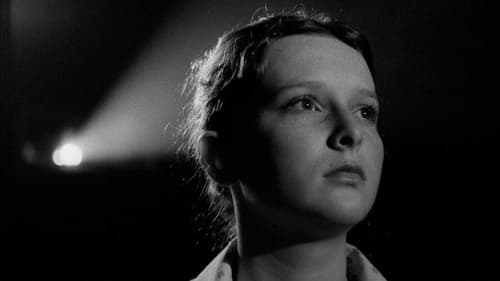
Editor
A semi-autobiographical story of a young woman's life in Budapest under Stalin.

Editor
"Ripacsok" is a great movie with great soundtrack, acting, cinematography, direction, etc. The world of "artists", hamming actors, good clowns and bad clowns... A unique movie in many ways. Pál Sándor is a very good hungarian director, watch his movies (especially the slightly better "Régi idõk focija") if you have the chance.

Editor
Angi Vera, as a promising young woman, gets invited to a Communist training center to undergo the next level of indoctrination into Party life. She begins to realize how people get ahead in the Party: by saying things they don't mean but think are politically correct; by becoming friends with Party dignitaries, even if you don't like them; by being seen as a dedicated worker (as opposed to actually being a dedicated worker).

Editor
Winter of 1944, the last days of the war. When the roads and houses ceased to exist and the bottom of the cellars become filled with life, when fortunes were lost and countries burned up, her used coat was only important to Mama, the cloak-room servant of a local dance-school. Her son stole it to sell it for twenty pengő. He did it because Aranka Fussbaum's love cost money. There is no honour left in such a destroyed world. Yet still they start looking for that coat... (Elemér Ragályi won Best camera with this movie in Montreal, 1979, and in Budapest, 1980.)
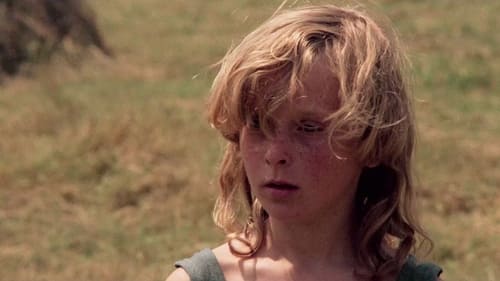
Editor
On his return from America, András simply cannot find his place: he has lost his wife, friends and job, and he cannot even find his way back to his former great love. Eventually, as a surrogate father, he takes in a wild young girl (Zsuzsa Czinkóczi) and a particularly strong bond is formed between these two rootless people. Márta Mészáros’s remarkable movie starring Jan Nowicki and Anna Karina is about displacement, loneliness and attachment.
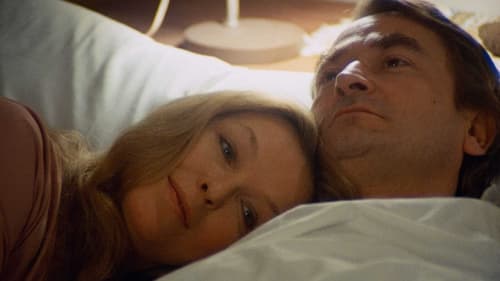
Editor
Looking for a safe place to live after being harassed by her husband, a depressive and violent man, Juli stays at a women's shelter run by Mária.
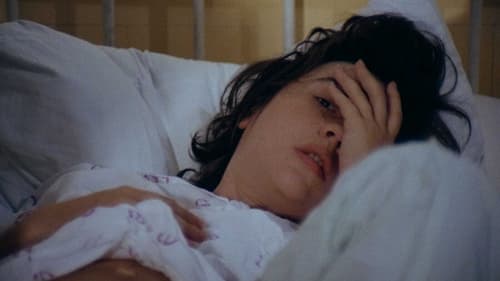
Editor
Village-girl (Juli Kovács) arrives in the city to work in a factory. The works manager (János Bodnár) sets his eye on her, but at first the girl refuses his advance.

Editor
György Szomjas’s first feature—made after a decade of short documentaries—is a bold attempt at a goulash western, set on the puszta, or Great Hungarian Plain, in 1837. Mixing Miklós Jancsó imagery and a Sergio Leone narrative, this ballad-like saga opens with image of a lone horseman on the empty plain, riding past a rude gallows. The film concerns the vengeful return of a legendary betyár (outlaw), briefly a hero to the local herdsmen who oppose the state building a canal across their grazing land. Although Szomjas works from ethnographic records and archival material, it is hardly surprising that this violent, primitivist film would be more popular with Hungarian audiences than critics. Replete with young guns, crooked sheriffs, tavern brawlers and hardbitten plug-uglies, this widescreen film is strikingly shot by Elémer Ragályi (cinematographer for most of Gyula Gazdag’s films)—a feast of loamy, autumnal colors.

Editor
After the breakup of the Austro-Hungarian Empire, a young Hungarian, wanted by the police for political crimes, escapes to just this side of the Austrian border. When he discovers that his escape contact has been shot, he disguises himself as a woman and, posing as a maid, takes refuge at a tuberculosis sanatorium. He lives there as a woman for the entire winter before resuming his journey in the spring.

Editor
When middle-aged Kata realises that her life will only be complete if she has a baby of her own, her longstanding-but-married boyfriend Joska refuses to comply. But by developing an unlikely friendship with the angst-ridden teenage orphan Anna, who is also involved in a controversial relationship, Kata discovers aspects of herself, and her role as a woman, that have gone unexamined throughout her entire, lonely life.

Editor
The film is set in Budapest, 1924. Laundryman Ede Minarik's only passion is football. His dream is to see his team, Csabagyöngye, qualify for the first division. For this goal he would be willing to sacrifice everything he has. But he has nothing, even footballers just barely. The team is just like the times. But still, "we need a team!"

Editor
The story of the film with a touch of journalistic atmosphere takes place in the autumn 1919 after the fall of the proletarian dictatorship. The main figure is Zilahy Kálmán, a high-school teacher, very much attracted to Ady's ideology. He is, at the same time, a rational minded sober character keeping a certain distance from the chaotic events. During the first months of the terror of the Whites, he takes a stand for his persecuted colleague, and with his wife's help, he hides Pálos, a Communist commissar in his flat.

Editor
István and Jakab are fire-extinguisher experts. They travel the country to check fire-extinguishers at country factories. During their tours of inspection they chase women, drink in dirty pubs and live in clover.

Editor
Szegedi Anna, a lawyer having just arrived back from Naples wants to divorce his husband, also a lawyer, because since a hot night she has only been thinking of Laczkó, the handsome businessman.

Editor
The heroines of this lyric comedy full of burlesque elements are two girls from a village who get totally engrossed in their day-dreaming. Ida and Rozi escape to the city to catch husbands for themselves.

Editor
After his divorce, Bóna Péter, a beginner film director needs a bigger amount of money to settle his financial problems with his ex-wife. He travels to Pécs to see Sárika, an old veteran. He has not seen his aunt for a long time, and she receives him very friendly, but she flatly refuses to lend him any money.

Editor
The film describes the general situation and conditions of the middle-aged intellectuals.

Editor
The film is a historic parable about the topicality of revolution. 1514. The peasants' uprising is over, Dózsa has been arrested. Werbőczy tries to get the imprisoned peasant leader deny the revolution and offers him the lives of his people in exchange.

Editor
A 1970 film.

Editor
This mocking criticism of public life and the media focuses on a TV series. The protagonist of the film, depicting the battles fought for Hungarian castles during the Ottoman occupation, is chosen to be the amateur Prohászka Feri, a worker in the beer-factory.

Editor
Documentary about the Italian men that visit Hungary to meet girls and the Hungarian women that fall in love with them.

Editor
Juli is a 17-year-old student who takes a summer job in a local chemical factory. She is befriended by Piri, a girl with an unsavory reputation who has worked there before. The two friends are ogled by male workers who have overactive libidos and imaginations. Juli spurns the advances of a deluded Romeo while Piri continues to work and endure open hostility from the older female workers while her slothful parents sink deeper into alcoholism.

Editor
The family travels to Zebegény for their holiday, and the following day the seventeen-year-old Vera also leaves for Lake Balaton to pick peaches in a voluntary camp there. Her boyfriend, Gyuri, goes to a film shooting. Gyuri would like to make the best of the day in the absence of parents, but Vera refuses him. She becomes jealous at once, however, when she discovers Gyuri's previous girlfriend in the shooting team.
























